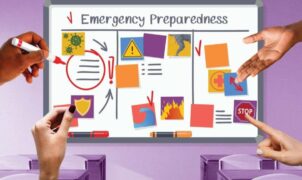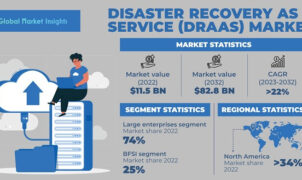
Mice and pests can cause considerable inconvenience and potential hazards within your living space. However, by implementing preventive measures and utilizing professional pest control services, you can safeguard your home effectively and safely. Below are crucial tips to prevent rodents and pests, along with the benefits of employing professional services.
1. The Dangers of Mice and Pests:
Mice and pests present multifaceted dangers within residential or commercial spaces. These dangers extend beyond mere nuisance, often impacting health, safety, and the structural integrity of the environment they inhabit.
Health Risks:
- Spread of Diseases: Mice and pests serve as carriers for various pathogens, including bacteria, viruses, and parasites, posing a significant risk of disease transmission. Diseases such as Hantavirus, Salmonellosis, and Leptospirosis are commonly associated with rodents.
- Allergies and Respiratory Issues: Their droppings, urine, and fur can trigger allergic reactions and exacerbate respiratory problems in sensitive individuals, leading to asthma attacks or allergic rhinitis.
Property Damage:
- Structural Damage: Rodents often gnaw on wood, insulation, wiring, and other structural elements of buildings, potentially causing significant damage that compromises the integrity of the property.
- Contamination of Food and Water: Pests can contaminate stored food and water sources by nibbling on packaging or directly accessing these supplies, rendering them unsafe for consumption.
Economic Implications:
- Financial Losses: Repairing structural damages caused by rodents and pests can result in substantial financial burdens for homeowners and business owners.
- Loss of Reputation: For businesses in the food industry, an infestation could lead to health code violations or loss of customer trust, impacting the business’s reputation and profitability.
Psychological Impact:
- Stress and Anxiety: The presence of rodents and pests in living or working spaces can cause stress and anxiety among occupants, impacting their overall well-being and mental health.
- Discomfort and Disruption: Continuous scratching, scurrying, or sightings of pests can create an uncomfortable and disrupted environment, affecting daily routines and quality of life.
Environmental Impact:
- Ecological Disruption: Invasive species of rodents can disrupt the local ecosystem by preying on native species or competing for resources, leading to imbalances in the natural environment.
- Chemical Contamination: Improper use of pesticides or rodenticides to control these pests can contribute to environmental pollution and harm non-target organisms.
Understanding these diverse dangers underscores the critical need for effective pest management strategies, emphasizing prevention, early detection, and professional intervention to mitigate the risks associated with mice and pests in both residential and commercial settings.
2. Preventive Measures Against Rodents and Pests:

1. Seal Entry Points:
Preventing rodents and pests from entering your home or establishment is crucial. Seal any gaps or cracks around doors, windows, pipes, and utility lines. Use caulk, mesh wire, or weather stripping to close off potential entry points. This limits their access and reduces the likelihood of infestation.
2. Maintain Cleanliness:
A clean environment is less attractive to rodents and pests. Regularly clean and declutter your surroundings, especially areas prone to food crumbs, spills, or standing water. Keep food tightly sealed in containers, promptly dispose of garbage, and regularly clean kitchen appliances and surfaces.
3. Eliminate Hiding Spots:
Rodents seek shelter in cluttered or undisturbed areas. Reduce hiding spots by organizing storage areas, clearing away debris, and properly maintaining outdoor spaces. Trim overgrown vegetation and bushes around your property to minimize hiding spots.
4. Use Rodent Deterrents:
Implement deterrents to discourage rodents and pests from settling in your space. This can include setting up traps, using ultrasonic devices, or employing natural repellents like peppermint oil or vinegar, which can act as effective deterrents.
5. Regular Inspections:
Perform routine checks around your property to identify potential entry points, signs of infestation, or areas that may attract rodents or pests. Early detection allows for prompt action, preventing a minor issue from turning into a full-blown infestation.
6. Professional Pest Control Services:
Consider hiring professional pest control services for a comprehensive and preventive approach. Experts can conduct thorough inspections, recommend tailored solutions, and employ safe and effective pest management strategies.
7. Environmental Modifications:
Make modifications to your environment that deter rodents and pests. For instance, installing mesh wire or screens on vents and chimney openings prevents their entry without compromising ventilation.
8. Educate and Involve Residents:
Educate household members or employees about preventive measures and encourage their involvement in maintaining a pest-free environment. Encourage responsible habits, such as promptly reporting sightings of pests or potential entry points.
9. Consistent Maintenance:
Consistency is key in pest prevention. Establish a regular maintenance routine to ensure ongoing cleanliness, repairs, and vigilance against potential pest entry points.
10. Seek Professional Advice:
Consult with pest control professionals for guidance on preventive measures tailored to your specific situation. Their expertise can provide valuable insights into long-term solutions and ongoing maintenance to keep pests at bay.
These preventive measures, when implemented consistently and thoroughly, form a robust defense against rodents and pests, significantly reducing the risk of infestation and safeguarding your home or business environment.
3. Benefits of On-Site Pest Control Services:

1. Effectiveness in Pest Elimination:
Professional pest control services offer specialized expertise in identifying and eliminating various pests. They employ proven methods and advanced techniques that are more effective in eradicating pests than over-the-counter solutions. With their knowledge and access to professional-grade products, these services can effectively target and remove specific pests, providing a more comprehensive solution.
2. Customized Pest Management Solutions:
On-site pest control services tailor their approaches to the unique needs of each property. They conduct thorough inspections to assess the extent of infestation, identify pest entry points, and develop customized plans suited to the environment. This personalized strategy ensures that the treatment is effective and addresses the specific pest issues of the property.
3. Long-Term Prevention and Maintenance:
Beyond eliminating existing pests, professional services focus on preventing future infestations. They implement preventive measures and offer ongoing maintenance plans to ensure that the property remains pest-free. This proactive approach helps in controlling potential reinfestation, providing peace of mind to homeowners or business owners.
4. Safe and Environmentally-Friendly Methods:
Professional pest control services prioritize safety for occupants and the environment. They use eco-friendly products and employ methods that are safe for humans and pets. These services adhere to strict guidelines and regulations, ensuring responsible and ethical pest management practices while effectively eliminating pests.
5. Time and Cost Efficiency:
While DIY pest control methods may seem cost-effective initially, they might not effectively eradicate the issue, leading to reoccurrence and additional expenses in the long run. Professional services offer cost-effective solutions by efficiently addressing the problem at its root. They save time by swiftly identifying and eliminating pests, reducing the need for repetitive treatments and associated costs.
6. Health and Hygiene Benefits:
Pests pose health risks, and their presence can compromise the hygiene of a space. Professional pest control services contribute to maintaining a healthy environment by eliminating disease-carrying pests and preventing contamination of food and water sources. This enhances the overall health and well-being of occupants.
7. Expertise and Knowledge:
Pest control professionals possess extensive knowledge and experience in handling various pest species. Their expertise allows for accurate pest identification, understanding pest behavior patterns, and selecting the most suitable treatment methods. This expertise ensures effective and targeted pest control solutions.
8. Guaranteed Results and Warranties:
Reputable pest control services often offer warranties and guarantees for their services. They stand behind their work, assuring customers of effective results. This provides assurance to property owners that if pests return within a specified period after treatment, the service provider will re-treat the area at no extra cost.
9. Minimization of Property Damage:
Pests such as termites, rodents, or carpenter ants can cause substantial damage to property structures if left unchecked. Professional pest control services prevent structural damage by identifying and eliminating these pests in their early stages, saving property owners from significant repair expenses.
10. Compliance with Regulations:
For businesses, especially those in the food industry, compliance with health and safety regulations is essential. Professional pest control services help businesses adhere to industry standards and regulations, ensuring that the premises meet required health codes and pass inspections.
On-site pest control services offer numerous benefits that extend beyond mere pest elimination. Their specialized expertise, tailored solutions, focus on prevention, and commitment to safety make them invaluable in maintaining pest-free and healthy environments for both residential and commercial properties.
4. Choosing Quality Pest Control Services:

1. Experience and Reputation:
When selecting a pest control service, consider their experience and reputation in the industry. A company with years of experience is likely to have encountered various pest scenarios and developed effective solutions. Check reviews, testimonials, or ask for recommendations from friends or neighbors to gauge the company’s reputation and reliability.
2. Certifications and Licensing:
Ensure that the pest control company holds the necessary certifications, licenses, and accreditations required by local or state regulations. These certifications signify that the technicians are trained, knowledgeable, and adhere to industry standards, ensuring safe and effective pest control practices.
3. Professionalism and Transparency:
Quality pest control services exhibit professionalism in their conduct. They should be transparent about their procedures, treatment plans, and the products they use. Technicians should provide clear explanations of the proposed treatment methods, potential risks, and safety measures to customers.
4. Insurance Coverage:
Verify whether the pest control company has proper insurance coverage. Insurance protects both the customers and the technicians in case of accidental damages or unforeseen incidents during the pest control process. Ensure that the company carries liability insurance and worker’s compensation coverage.
5. Integrated Pest Management (IPM) Approach:
Look for companies that follow an Integrated Pest Management approach. This strategy emphasizes proactive measures, such as inspection, monitoring, prevention, and treatment as needed. IPM focuses on long-term solutions while minimizing the use of pesticides, promoting environmental responsibility.
6. Evaluation and Inspection Services:
Reputable pest control services begin with a thorough inspection of the property to identify the extent of infestation and assess the specific pest issues. They should provide detailed evaluations, outlining the types of pests present, the severity of the problem, and recommended treatment plans.
7. Customized Treatment Plans:
Quality pest control services don’t apply a one-size-fits-all approach. They design customized treatment plans tailored to the unique needs of each property. These plans consider factors like the type of pests, the size of the property, and the presence of children or pets, ensuring targeted and effective solutions.
8. Use of Safe and Effective Products:
Inquire about the products and treatments the company uses. Quality services prioritize the use of safe and environmentally-friendly products that effectively eliminate pests without posing health risks to occupants or causing harm to the ecosystem. They should provide Material Safety Data Sheets (MSDS) for all products used.
9. Guarantees and Warranties:
Reputable pest control companies often provide guarantees or warranties for their services. They stand by the effectiveness of their treatments and offer reassurance that if pests return within a specified period, they will re-treat the area at no extra cost, demonstrating their commitment to customer satisfaction.
10. Transparent Pricing and Contracts:
Ensure that the pricing structure is transparent and clearly outlined. Request a detailed breakdown of costs for the proposed services and any ongoing maintenance plans. Review contracts carefully, ensuring that all services, guarantees, and responsibilities are clearly defined before signing.
11. Customer Service and Follow-Up:
Assess the level of customer service provided by the company. Quality pest control services prioritize customer satisfaction and maintain open lines of communication. They follow up after treatments, provide guidance on post-treatment precautions, and offer ongoing support and advice.
12. Referrals and References:
Ask the pest control company for referrals or references from previous customers. Contacting these references can provide insight into the company’s reliability, the effectiveness of their treatments, and the overall customer experience.
Choosing a quality pest control service involves thorough research, considering various factors beyond just the cost. Prioritize companies that demonstrate professionalism, transparency, expertise, and a commitment to safe, effective, and customized pest control solutions. Investing time in selecting the right pest control service can lead to long-term pest management and a pest-free environment for your property.
Conclusion:
By combining preventive measures and professional pest control services, you can protect your home from rodent infestation, creating a safe and clean living environment for your family.
Contact on-site pest control experts for the most professional advice and assistance for your home!







 Welcome to LawyerNote, your premier destination for expert legal counsel tailored to your unique needs. At LawyerNote, we specialize in navigating the complexities of the legal system, offering comprehensive solutions to our valued clients. With a team of seasoned attorneys covering diverse fields including corporate law, family law, and criminal defense, we’re equipped to handle a wide spectrum of legal matters. Our unwavering commitment to excellence, integrity, and client satisfaction sets LawyerNote apart. Whether you’re grappling with a complex litigation case or seeking guidance on business transactions, LawyerNote is your trusted legal partner every step of the way.
Welcome to LawyerNote, your premier destination for expert legal counsel tailored to your unique needs. At LawyerNote, we specialize in navigating the complexities of the legal system, offering comprehensive solutions to our valued clients. With a team of seasoned attorneys covering diverse fields including corporate law, family law, and criminal defense, we’re equipped to handle a wide spectrum of legal matters. Our unwavering commitment to excellence, integrity, and client satisfaction sets LawyerNote apart. Whether you’re grappling with a complex litigation case or seeking guidance on business transactions, LawyerNote is your trusted legal partner every step of the way.




